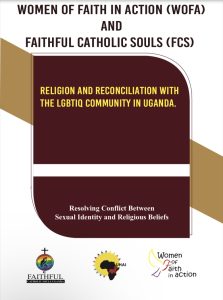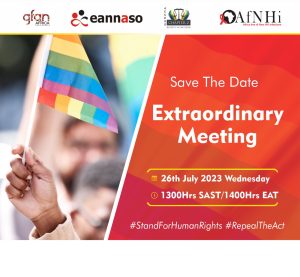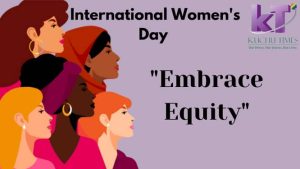As Uganda celebrates 61 years of Independence, it is a momentous occasion to reflect on the journey of a nation that has overcome numerous challenges and embraced progress. However, amidst the joyous celebrations, it is imperative to address one lingering issue that casts a shadow on the concept of true independence—the presence of anti-gay laws that persist in the Ugandan legal system.
Uganda, like many other African nations, gained independence from colonial rule in the mid-20th century. The struggle for self-determination was marked by a vision of freedom and sovereignty. Fast forward to the present, Uganda stands tall as a nation that has made significant strides in various aspects, including economic development, education, and healthcare.
However, the existence of anti-gay laws in Uganda remains a stain on its path to true independence. The draconian Anti-Homosexuality Act, 2023 aimed at punishing a group of the population for who they love is a direct infringement upon basic human rights.
It is crucial to acknowledge that these anti-gay laws are not indigenous to Uganda; they are a lingering remnant of colonial-era legislation. Many African nations inherited a legal framework that criminalized same-sex relationships from their colonial rulers, and Uganda is no exception. The imposition of such laws reflects a disconnection with the diverse and inclusive traditions that have long been a part of African societies.
True independence entails not only political autonomy but also the freedom of every citizen to live without fear of discrimination based on their sexual orientation or gender identity. The persistence of anti-gay laws in Uganda underscores a struggle for the complete liberation of its people. It is a call for a re-evaluation of legal codes to align with the principles of equality, justice, and respect for human rights.
As Uganda stands at the crossroads of tradition and progress, it is essential to recognize that the fight against discrimination is not a departure from African values but rather a return to the roots of tolerance and acceptance. Many pre-colonial African societies embraced diversity, understanding the richness it brings to the cultural fabric.
Celebrating independence demands an examination of the societal norms that hinder certain citizens from relating to such words like independence. In the spirit of true independence, Uganda has the opportunity to redefine its stance on issues of human rights, embracing the diversity that is inherent in its population. It can draw inspiration from the principles that fueled the struggle for independence and extend those principles to all citizens, irrespective of their sexual orientation or gender identity.
As Uganda commemorates its 61st Independence Day, let it be a moment of introspection and a commitment to fostering an inclusive society. True independence is not complete until every citizen can partake in the celebration without fear of persecution or discrimination. It is a journey toward a future where the echoes of colonial-era laws are replaced by the harmonious melodies of equality, justice, and acceptance.




